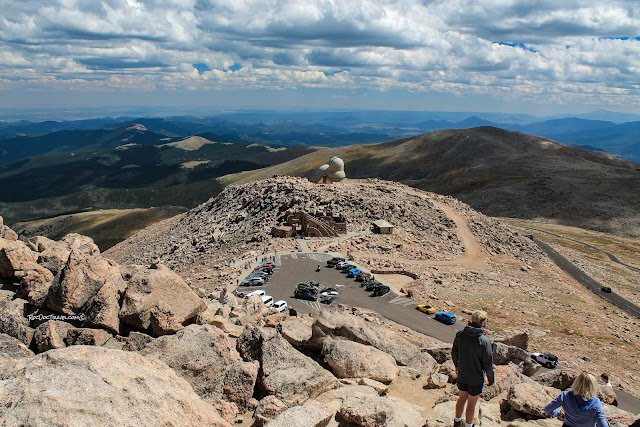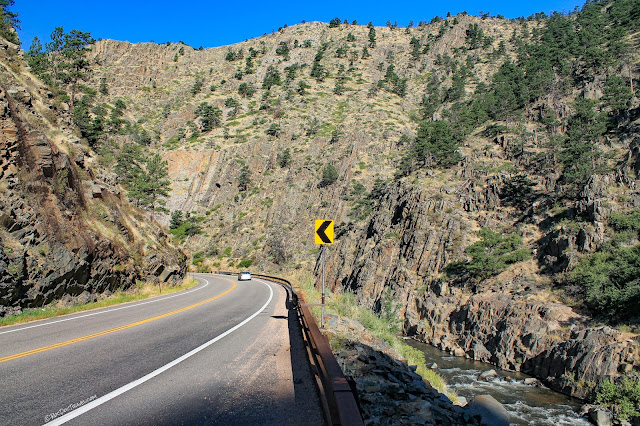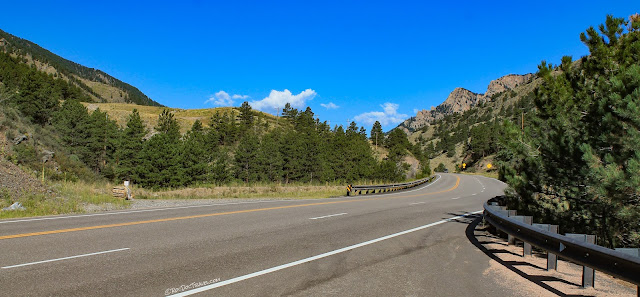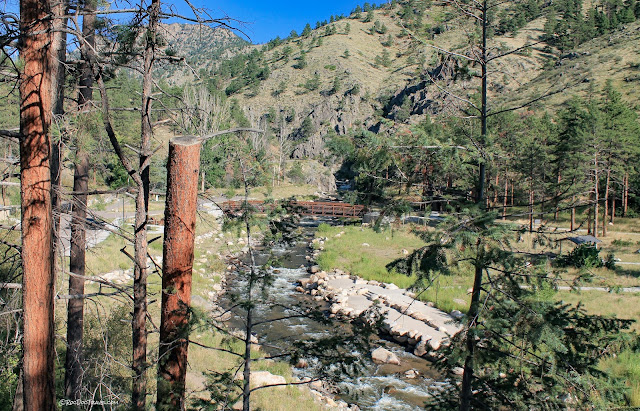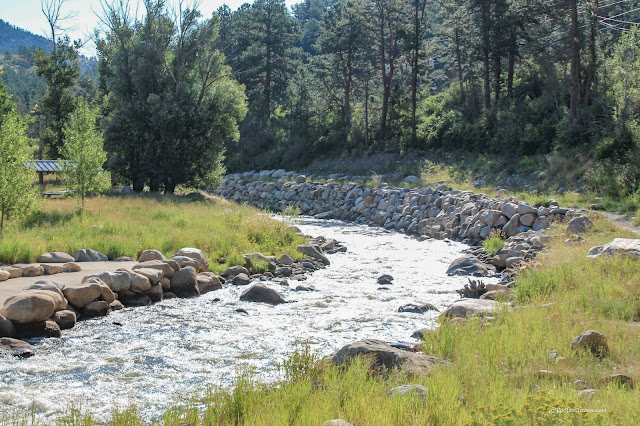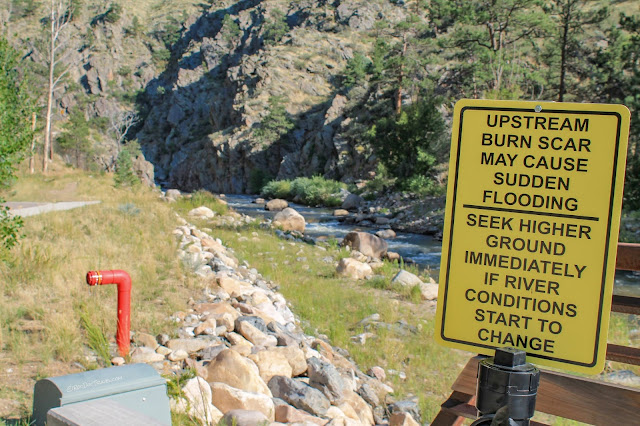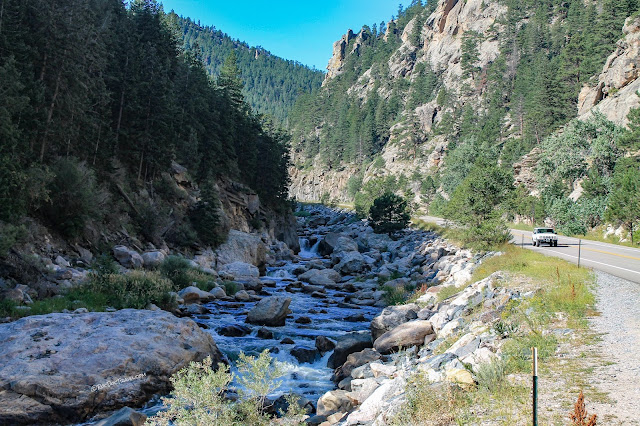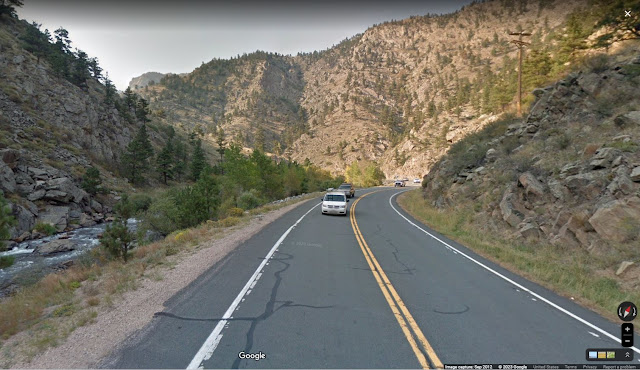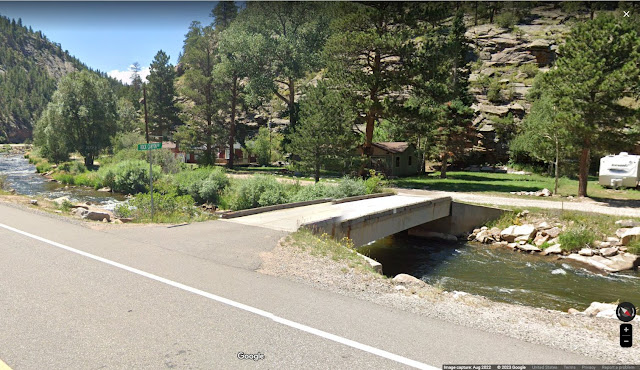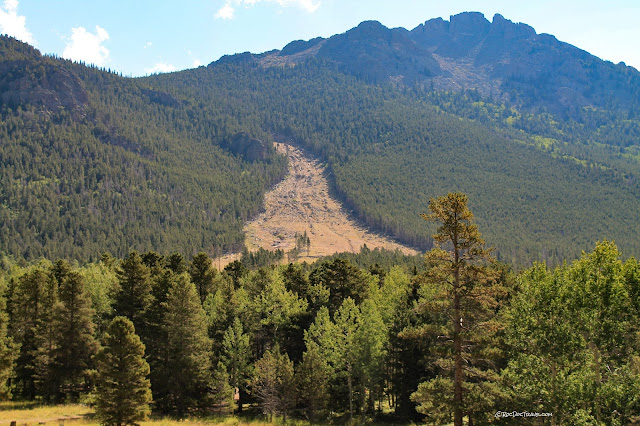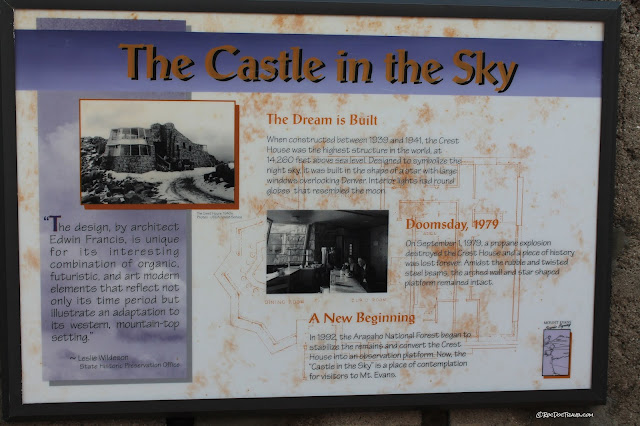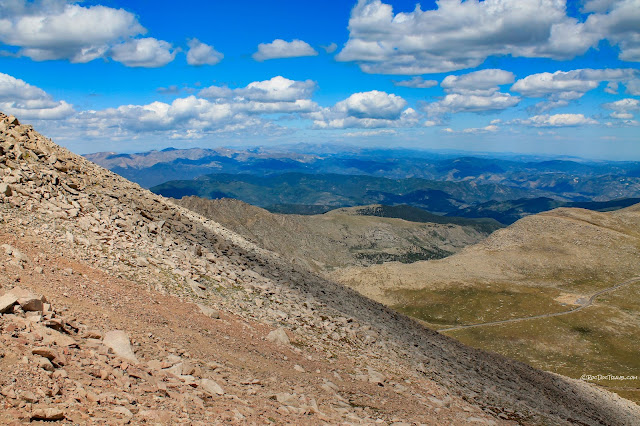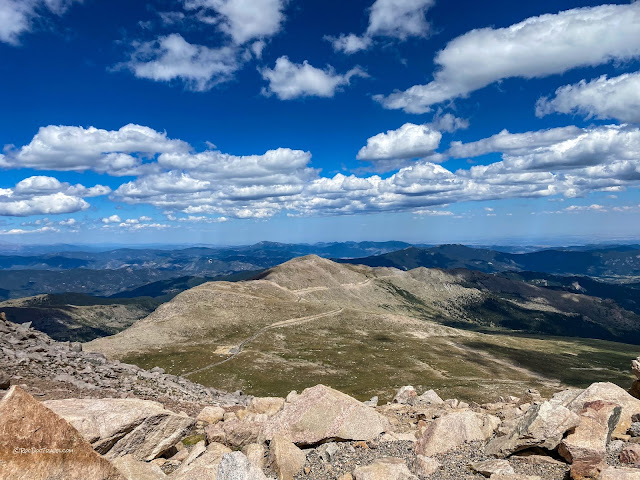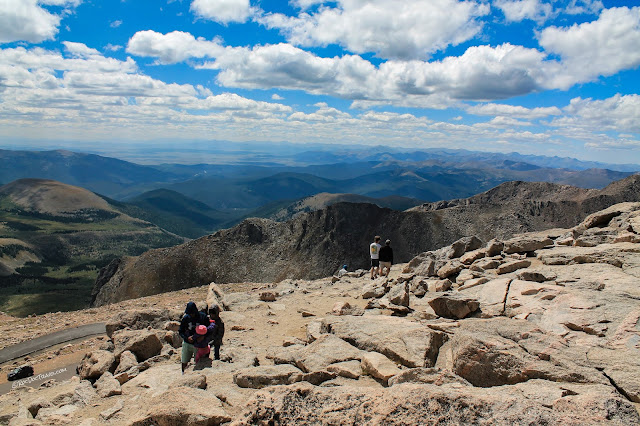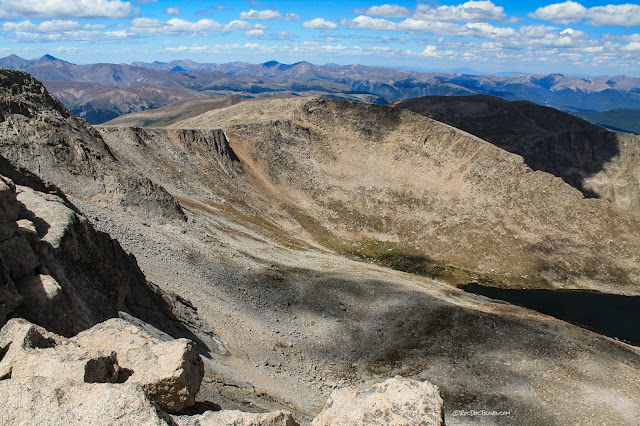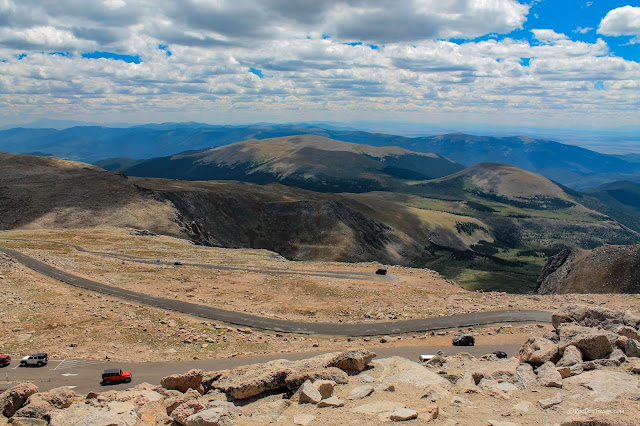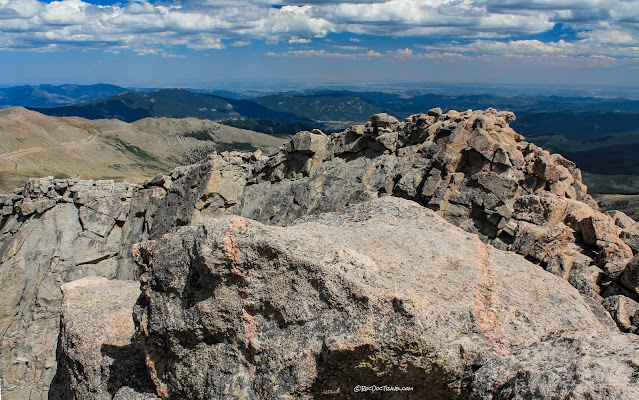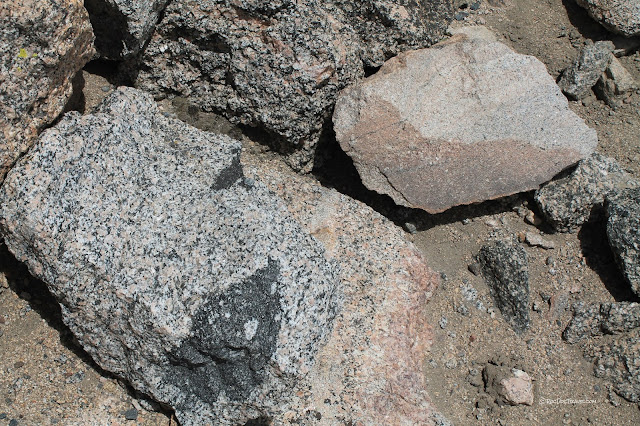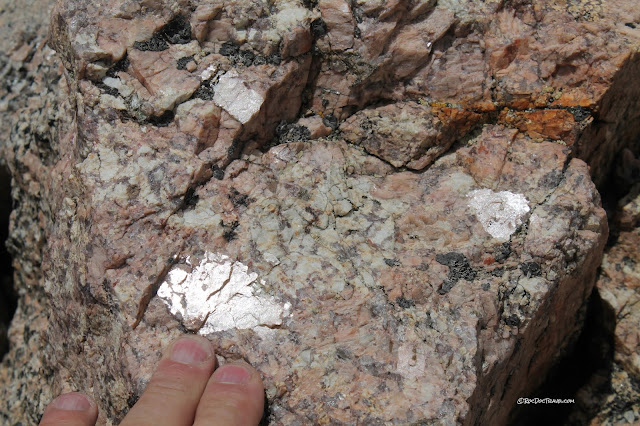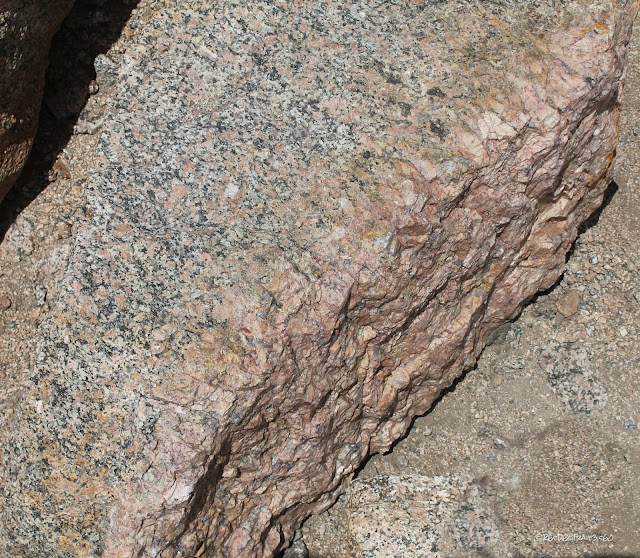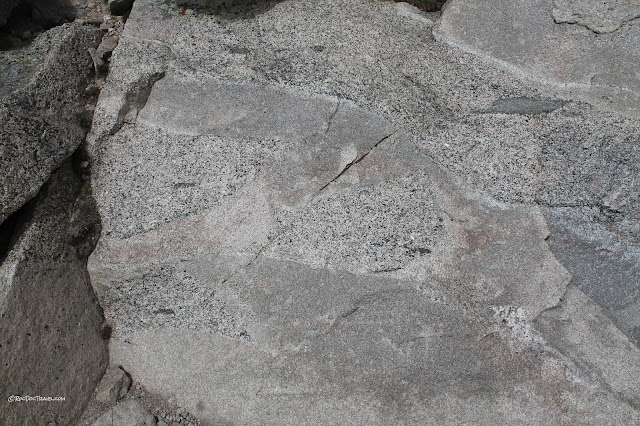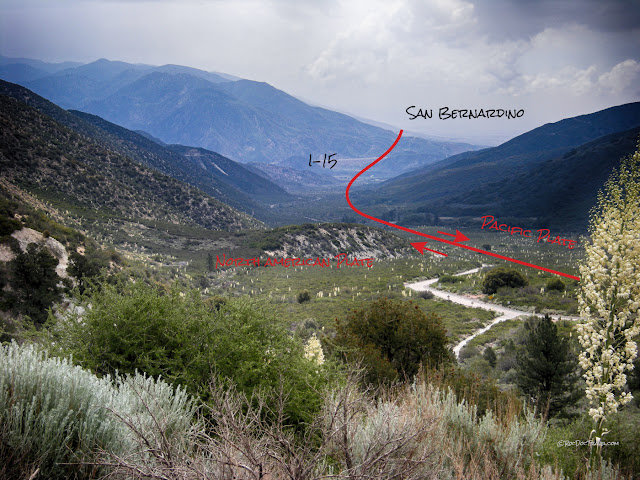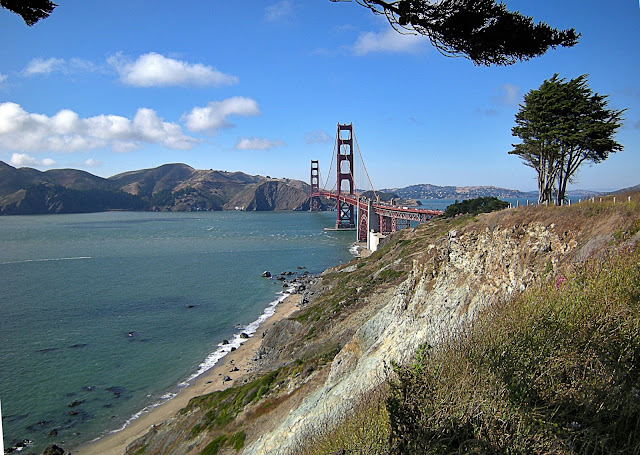Big Thompson Canyon and Mt. Evans, Colorado
Big Thompson Canyon & Mt. Evans, Central Rockies, Colorado
Explore spectacular Big Thompson Canyon and Mt. Evans, site of America's highest paved road!
Big Thompson Canyon is located between Loveland and Estes Park, Colorado.
Geology of Big Thompson Canyon
Ancient Bedrock and Major Flash Floods
To help get you oriented, here's a Google Earth flyover moving westward up Big Thompson Canyon.
Here's the same flyover with the geologic map laid on the topography. Each color represents a different kind of rock (explained below).
The bedrock in the east end of the canyon is metamorphic schist (mica-rich, shiny layered rock) and gneiss (light/dark banded granite-like rock). These formed 1.6 to 1.8 billion years ago as part of a continent that predates North America.
The finely layered dark rocks are schist, and the rest is gneiss. They are steeply tilted because of a long history of tectonic compression since they initiallyl formed 1.6 to 1.8 billion years ago. This particular rock likely was originally a stack of sedimentary rocks, transformed by pressure.
Notice how steep and rocky the canyon is! There's very little soil on those slopes to absorb rain, so heavy rain quickly fills the river. That's what happened in the big floods in 1976 (America's deadliest flash flood, 143 killed) and 2013.
The canyon widens in a few places, like here west of the series of goosenecks. It's the same schist and gneiss bedrock.
Viestenz-Smith Mountain Park has information about the big flood of 1976, and it's a pleasant place to stretch your legs and enjoy the river. It's located here: 40.419132, -105.281760
The riverbanks have been armored with rip-rap (blankets of boulders) to reduce erosion. Outside bends like the one shown here are particularly vulnerable to erosion during floods.
Flood warning signs are placed throughout the canyon. The reason this canyon is so prone to flash floods is the impermeable metamorphic bedrock and its large drainage area in the Estes Park area, which can collect a tremendous amount of rainfall.
This stretch of Big Thompson shows the armored riverbanks. Previous flood levels are visible (a little higher than the highway) where older vegetation was stripped away.
US highway 34 had to be rebuilt in many places after the 2013 flood, including this spot where it was moved higher away from the river, and a new roadcut was made (at the far end of the road in this picture) to avoid following around the river's gooseneck.
The canyon opens up at Estes Park, and the first thing you see is this big earthen dam for Lake Estes. Rocky Mountain National Park is in the mountains in the right distance.
Estes Park is beautiful, surrounded by high Rockies peaks. The bedrock here is similar to Big Thompson canyon.
I found this big avalanche scar south of Estes Park, where snow (and probably a lot of mud and rocks) recently stripped out the forest.
Geology of Mt. Evans
America's Highest Paved Road at 14,130 ft.
Mt. Evans road is accessible to any vehicle whose brakes and radiator are in good condition, but I don't advise taking any RV's up the steep, winding road. The high elevation also weakens combustion engines, so expect your vehicle to be a bit sluggish.
The Mt. Goliath Natural Area has a little visitor center and great scenic views. It's located here: 39.642924, -105.592791
Here's a warning: The road has extremely bad pavement! Low sports cars will have a terrible time scraping along here. Hopefully by the time you visit, the state will have repaved.
I was surprised to find this old stone building at the top parking lot. It was someone's pretty great idea to build a restaurant at "the top of the world," but...
... it was destroyed in a propane explosion in 1979. I'm kinda sad it was not rebuilt. It's now an observation area. Don't be surprised to see mountain goats nearby!
These are the rocks of the peak. See the pink pegmatite dikes?
What is that bedrock?
Mt. Evans is part of a granitic batholith, which is a large exposure of granite made of many individual plutons, like the blobs of wax gathered in the top of a lava lamp. The dark rock here is a xenolith ("foreign rock") of older rock that fell into the granite magma. The lighter pinkish rock is aplite, a granite named for its finely crystalline "apple" texture.The minerals in granite are quartz (glassy or gray), feldspar (opaque white or pink), biotite (shiny black plates), and amphibole (black, kinda rectangular). Much of the granite here is porphyritic, which means some of the minerals (typically feldspar) are much larger than the rest.
Another variety of granite here is pegmatite, which I like to call "minerals of unusual size (MOUSs). The reflective ones here are orthoclase feldspar
While the granite is still molten and moving, magma pockets of different composition flow and mix together, like here where a lighter colored, finer textured granite flowed in and around the speckled granite.
